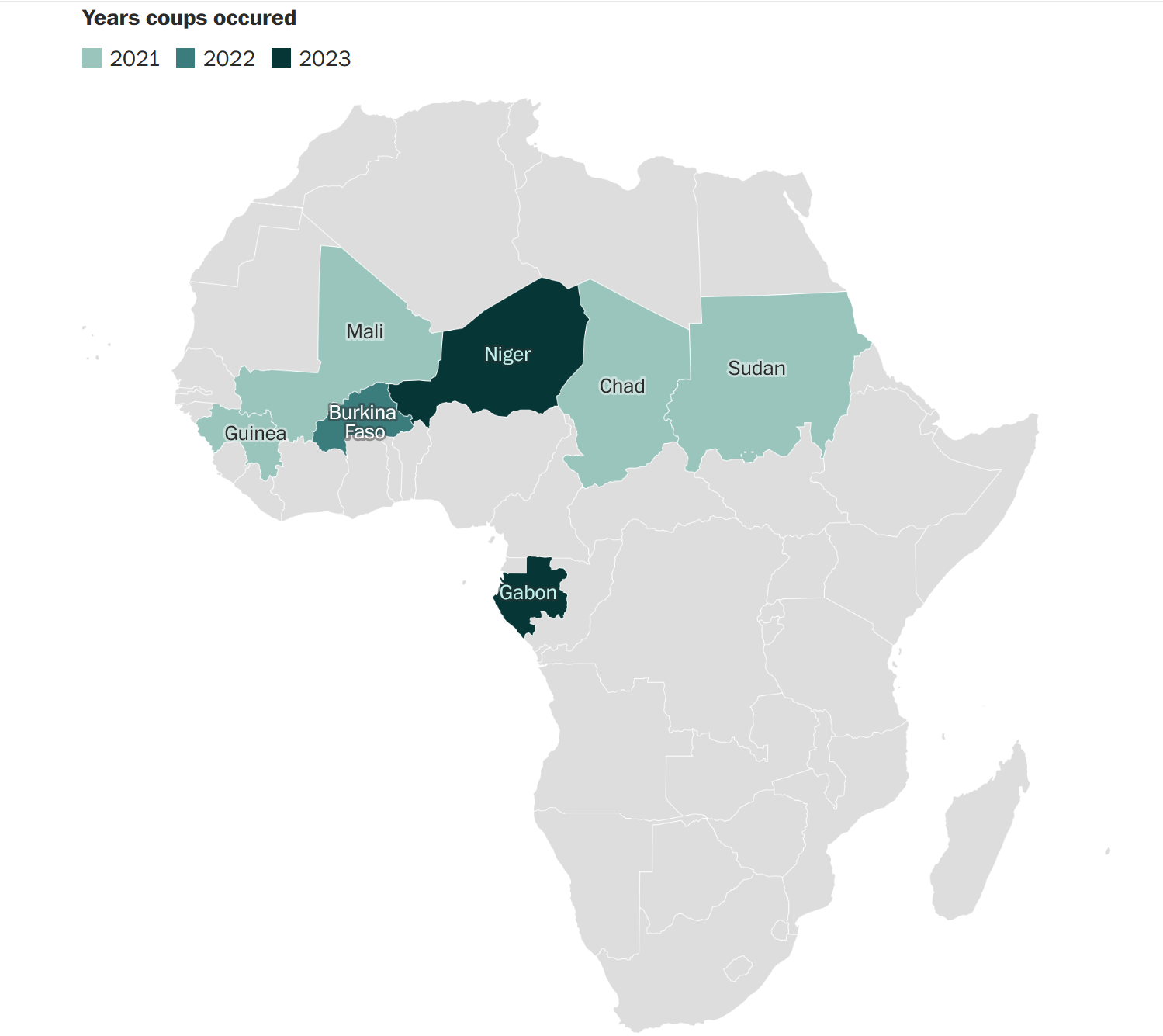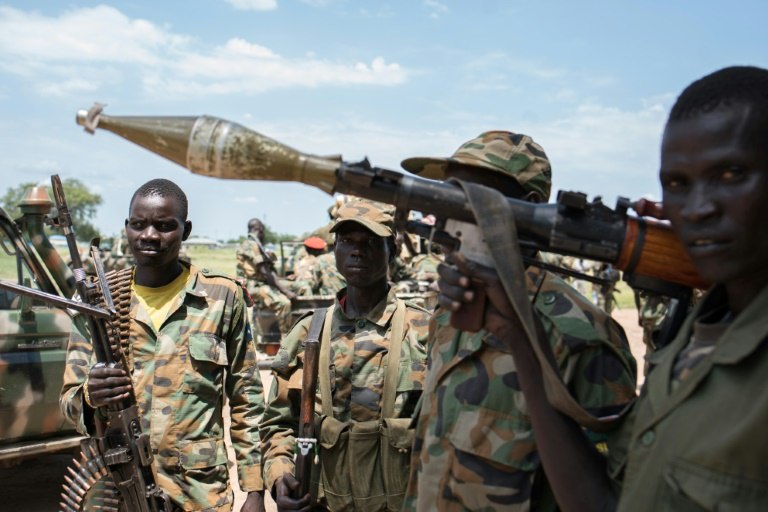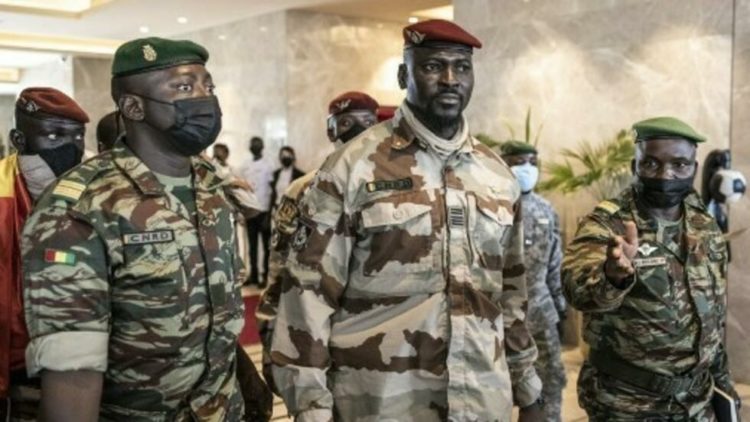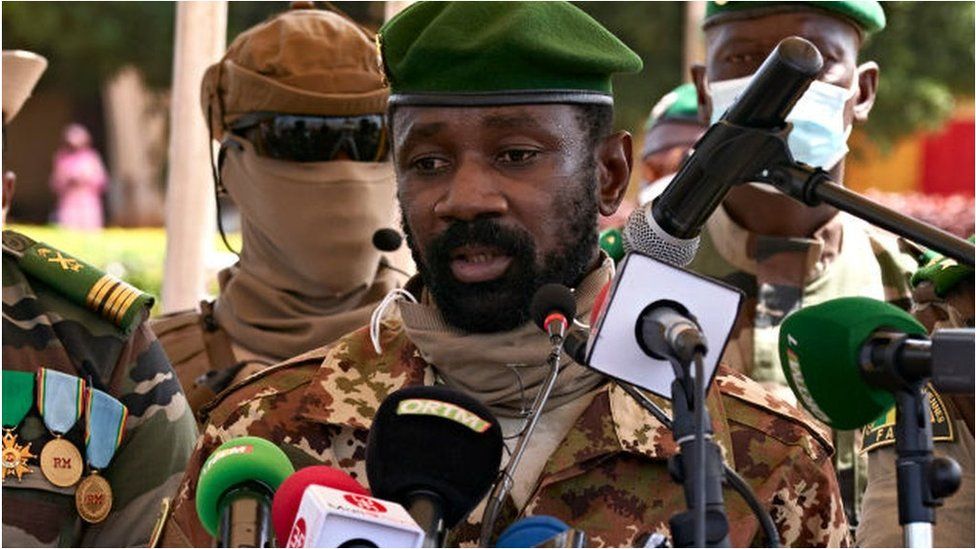Over the last three years, coup d’états have taken place in West and Central Africa, a region that has tried to shed its reputation as a « coup belt »
The confluence of constitutional crises in the region raises several questions. Why these three countries? Why now, in such short succession?
Here are all the coups in Africa that happened in three years
A timeline:

2023: Gabon

On August 30th, Minutes after the state electoral commission declared President Ali Bongo had won a third term, a group of top Gabonese military officials came on national television early on Wednesday and said they had taken power.
They dissolved state institutions, including the Senate, National Assembly and Constitutional Court. They said in a later statement that Bongo was under house arrest.
2023: Niger
![Niger Millitary announces coup [Guardian]](https://ocdn.eu/images/pulscms/ZjQ7MDA_/8be3ea91f92a79e1bbed083a95269f6b.png)
On 26 July 2023, a coup d’état occurred in the Republic of the Niger when the country’s presidential guard detained President Mohamed Bazoum. Senior officers from various branches of the Defence and Security Forces (FDS) formed a junta named the National Council for the Safeguarding of the Homeland (CNSP).
Shortly after confirming the coup’s success, the presidential guard commander, General Abdourahamane Tchiani, proclaimed himself the leader of a new military junta.
2022: Burkina Faso

Burkina Faso underwent two military coups last year.
In January 2022, mutinous soldiers led by Lieutenant-Colonel Paul-Henri Sandaogo Damiba arrested President Roch Marc Christian Kabore. Shortly after seizing power, Damiba claimed he would address the country’s security crisis.
Eight months later, Burkina Faso suffered its second coup of the year when Captain Ibrahim Traoré declared himself head of state on September 30. Traoré justified his seizure of power on Burkina Faso’s deteriorating security situation.
2021: Sudan

After a wave of mass protest and security force defections, the Sudanese military, led by General Abdel Fattah al-Burhan, staged a coup, declared a state of emergency, and dissolved the Transitional Sovereign Council (TSC) and transitional government that had been in place since the overthrow of Omar al-Bashir’s regime in 2019.
By November 11, 2021, al-Burhan reconstituted the Sovereign Council, with himself as chair, including old members, new members, and Juba Peace Agreement (JPA) signatories in the body.
2021: Guinea

In September 2021, Lieutenant Colonel Mamady Doumbouya became Guinea’s interim president just under a month after leading a coup against President Alpha Condé.
The former French legionnaire announced that the army had no option but to seize power because of the rampant corruption, disregard for human rights and economic mismanagement under the 83-year-old President Condé.
2021: Chad

In April 2021, the military council dissolved parliament after President Idriss Deby was killed on the battlefield while visiting troops fighting rebels in the north.
Under Chadian law, the speaker of parliament should have become president. However, Deby’s son, General Mahamat Idriss Deby, was named interim president and tasked with overseeing an 18-month transition to elections.
2020, 2021: Mali

On Aug. 18, 2020, a coup d’état Led by Assimi Goïta, a group of Malian military leaders, overthrew President Ibrahim Boubacar Keïta over accusations of corruption, poor economy and insecurity.
Under pressure from International leaders and the U.N. Security Council, the junta agreed to cede power to a civilian-led interim government tasked with overseeing an 18-month transition to democratic elections in February 2022.
Following a clash with the interim president, the junta backed out of the agreement to transition the country back to civilian elections. Goïta staged another coup and remains in power today.
Pulse





